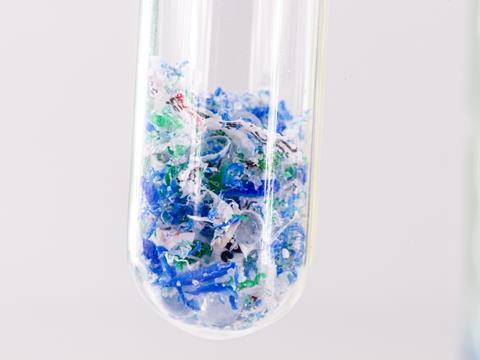
NEXTLOOPP has completed a study of background contamination of post-consumer PP packaging, with the results set to be submitted to the EFSA, USFDA, and UK FSA.
It is claimed that the study is the first UK/European study of its kind to be based on current recycling infrastructure and packaging materials. According to NEXTLOOPP, its experts took samples of post-consumer washed PP flakes from over 17,5000 different pieces of packaging and used them to undertake GC-MS, an analytical method combining gas-chromatography with mass spectrometry.
This allowed them to run 700 headspace analyses and identify the different substances within the flakes, with the resultant data set screened through Principal Component Analysis to identify outliers. Each peak found in the study was also compared against the NIST mass spectral library.
The results are expected to add to existing knowledge about other plastics, such as HDPE and PET, and enhance the current understanding of risk management and recycling food-grade recycled polyolefins. From there, NEXTLOOPP and its members hope to ‘take a transformational approach to the stringent food safety requirements around food-contact recycled PP and further validate the approach of meshing highly effective sorting with powerful decontamination.’
The findings are thought to be significant in light of new regulation announced by the EU Commission regarding food-contact recycled plastics.
Earlier this year, a study led by scientists from the Food Packaging Forum, ETH Zürich, and the Swiss Federal Institute of Aquatic Science and Technology resulted in the development of a list of Food Contact Chemicals of Concern. The researchers recommended that the substances should be immediately phased out of packaging solutions as part of the EU’s Chemical Strategy for Sustainability.
Niko Markkinen, a food contact material testing expert at Measurlabs, previously spoke to us about ensuring contact safety in biobased packaging, including testing for contamination. He pointed to a 2019 study by Fera Science that concluded that such materials do not compromise shelf life or consumer safety, yet he warned that this result should not be assumed to cover new, untested innovations in biobased packaging.


















No comments yet